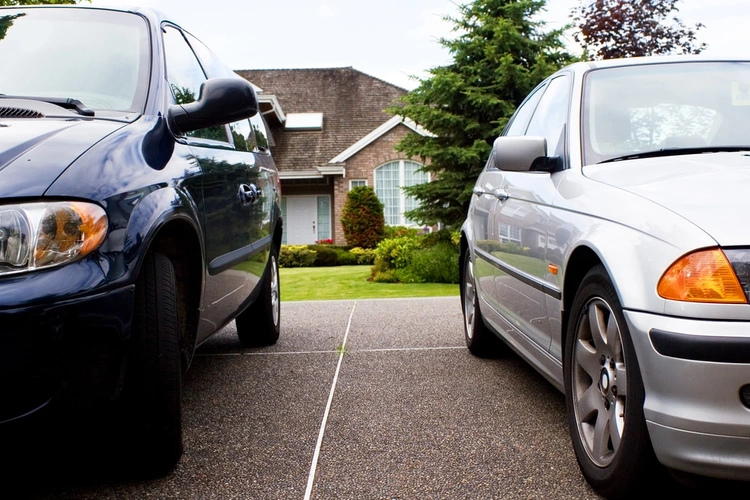How many cars can I have on finance at once?
There’s no legal limit to the number of cars that you can have on finance at one time. However, to qualify for multiple loans, you’ll need to demonstrate that you can afford to repay them. You will likely need to have a good credit score that proves you’ve been a reliable borrower in the past. Lenders have a commitment to lend responsibly, and they shouldn’t issue a loan to someone who they reasonably suspect won’t be able to afford the repayments comfortably. That’s why checks are carried out each time you apply for a new finance agreement.
When will the lender consider your first loan to be paid?
If you’re coming to the end of your car finance agreement, you might find that it’s considered paid even though you still have a few repayments to make. Typically, lenders will consider the debt paid when you have four to six instalments left. In this case, if you choose to make an application for a second car finance agreement at this point, that loan will be thought of as your only active deal.
While this may help you obtain a second car finance agreement, you should keep in mind that you’ll still need to be able to afford those final few payments on the first.
How can affordability affect multiple car finance?
Affordability checks are an important part of the car finance process, especially when you’re applying for more than one loan. Lenders will typically use a car finance affordability calculator to assess your monthly income and outgoings to determine the amount of money that’s left over once you’ve paid all your essential bills. Your current job role and salary will also be taken into account.
Your existing car finance agreement will be considered part of your regular expenses, alongside your rent or mortgage and household bills. The money you have left is known as your disposable income. If you have a lot of disposable income available and can comfortably afford a second car finance agreement, you may be able to find a loan. However, if a second deal could make it very difficult for you to maintain your current standard of living or your salary is unpredictable, you might find it harder to secure an approval.
What checks will be carried out when applying for multiple loans?
Each lender can follow different eligibility criteria and conduct different checks before offering an approval in principle. However, there are some common checks that almost all lenders carry out and that you can expect to undergo when looking to secure multiple car loans:
- Proof of identity
You may need to supply your name and date of birth as well as proof of identity, such as a passport or driving licence. - Proof of address
Most lenders will request three years’ address history in the UK, and you may need to prove your current address with a recent utility bill or council tax statement. - Proof of income
You may need to share your current job title, employer’s details, and salary along with three months’ payslips or bank statements.
- Credit checks
When you make an initial application for a second car finance deal, lenders will typically conduct a soft credit search to find out if you’re eligible for a loan. This won’t affect your credit score. However, if you choose to proceed with a loan, a hard credit check will be carried out and this will be marked on your credit report. Multiple hard credit checks in a short period of time could harm your score.
- Affordability checks
Affordability checks help lenders do their due diligence by ensuring they’re not issuing an unaffordable loan, especially if it will be your second or third car finance agreement. Your monthly income, expenses, salary, and job stability will all be considered when a lender is deciding whether they can approve you for another loan.
Can I finance two cars with a bad credit score?
If you’ve made late repayments in the past, had a CCJ, or been subject to an IVA, your credit score might have taken a hit. And while it can be more difficult to finance more than one car with a bad credit score, it’s not impossible. You just need to find the right lender. We work with a panel of lenders, including those that specialise in bad credit car finance. You might also need to pay a higher rate of interest that reflects the additional risk to the lender.
However, if you are struggling to find a hire purchase or personal contract purchase loan with bad credit, consider increasing your deposit (if you can) or choosing a cheaper car so that you can borrow less.
How can I improve my credit score?
If you are hoping to get a second finance agreement but need to boost your credit, the good news is that credit scores aren’t fixed, and you can take steps to improve them over time. It’s not an exact science and there’s no set score that’ll guarantee you’ll be approved, but following the tips below may help:
- Register on the electoral roll – head online to register for free every time you move house.
- Pay your bills on time – consider setting up a direct debit after payday to reduce the chance of paying late.
- Check for mistakes on your credit report – regularly looking at your credit report can help you spot unusual activity or incorrect details.
- Don’t use all the available credit – using a smaller percentage of your total credit and not maxing out your credit cards could boost your score.
- Don’t apply to several lenders at once – several hard credit searches in a short time could harm your score.
- Check your financial links – joint credit cards or mortgages could mean someone else’s credit profile is affecting your creditworthiness.
Can I buy cars on finance for my business?
If you’re a business owner, you might be looking to purchase a fleet of vehicles to transport your products or help your employees travel to client appointments. It is possible to buy multiple cars on finance for a business and there are lenders that can offer lease purchase and hire purchase loans to businesses. You may also be able to secure a bank loan or asset finance.
Your business will normally need to pass a credit check and demonstrate that it can afford the finance repayments. Depending on the type of agreement you choose, the business may take ownership of the car eventually or you could return it to the lender at the end of your term. You might also need to put down a deposit and agree to mileage restrictions.
A business’ car finance eligibility will usually depend on the length of time it’s been trading, its turnover per year, past accounts filings, information held by Companies House, and public records. If you’re a company director, your personal financial circumstances and credit history may also be considered. This means that if you have a new business or are operating a start-up, you might find it more difficult to secure multiple loans than a more established company.
Get Car Finance up to £100,000
- Check your eligibility without impacting your credit score
- No deposit needed
- Rates from 8.9%* APR
'Representative Example: Borrow £12,000 over 5 years with a £0 deposit. Representative 20.5% APR fixed rate. Monthly payment: £309.93. Option to purchase fee £10 payable. Total cost of credit: £6,605.80. Total amount repayable: £18,605.80.
We are a credit broker, not a lender. We partner with CarFinance 247 Limited, a credit broker (not a lender) who works with a wide panel of lenders.
Disclaimer: We make every effort to ensure content is correct when published. Information on this website doesn't constitute financial advice, and we aren't responsible for the content of any external sites.






